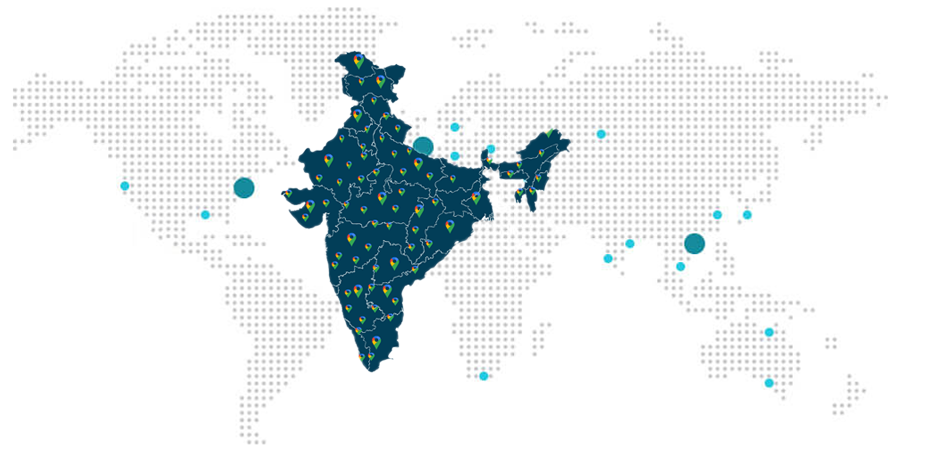Home / SA 8000 Certification
SA 8000 Certification in India
SA 8000 certification is a process by which individual companies & organizations assessed on social responsibility standards by the third party auditors. Third party certification includes independent assessment declaring that all the requirements pertaining to a person, product, process or management system have been met. If the company meets all the social responsibility standards, a certificate is given to that particular company or organization on following the compliances set by global non-government organization “Social accountability international(SAI)”. The auditors will visit companies to analyze or evaluate the management system of the company. The main aim of certifying a company or an organization with SA 8000 is to improve the workplaces and communities by developing and implementing socially responsible standards all over the world. It is applicable to all the industries except agriculture and extractive industries.
Social accountability international is an international, non-government multi stakeholder organization which bring together key stake holders to develop consensus based voluntary standards, accredited auditors, conducts cost benefits research, provide training and technical assistance and assist companies & organizations to improve the social compliances in their supply chains. Any organization interested in developing & implementing SA8000 standards should visit this website http://www.sa-intl.org and download the required information.
What Is Included In Our Package?
Eligibility Consultation
Document Preparation
Application Drafting
Government Fees
Requirements of SA8000 Certification
1Child labour – On the basis of SA8000 standards, an audit is done to find out that any standard in relation to child labour is violated. If supplier is following all local & national laws, it means he is compliant with this section. There are some other standards beside age restrictions that requires –
2Forced labour – An audit is done with the use of SA8000 standard to ensure that a supplier is not forcibly employing any worker or employee and not restraining personal documents, salary or benefits from workers. It also requires that staff is having the full right to leave the work place at the end of each working day.
It is an important aspect of social compliance which should be properly taken care of. It made its way into some specific legislature outside of voluntary standards.
3Health & safety – One of the most important requirements of SA8000 standard is to minimize or remove the hazards at the work place. It is the duty of the company or an organization to take care of the health & safety of the employees. Some specific requirements include –
4Freedom of association & collective bargaining -Another requirement of SA8000 standard is that the workers should have the full right to organize trade unions of their choice and freely elect their own representatives. It also helps in protecting unions from discrimination and harassment.
5Discrimination – SA8000 standards helps workers and protects them from discrimination on the basis of origin, race, caste, gender, religion, political affiliation etc. Suppliers that meet this requirement have no right to interfere in the workers practices in relation to their religion. For ex- Prayer. Suppliers cannot allow abusive or threatening behavior at the workplace and also they cannot force the staff to take pregnancy or virgin tests.
6Disciplinary practices – In relation to this requirement of SA8000 standard, supplier should treat the workers with dignity & respect. This prohibits inhuman treatment, corporal punishment, threat or verbal abuse.
6Working hours – One of the most important requirements of SA8000 standard is that the suppliers should allow any one day rest to workers in the six consecutive working days. An exception to this is made for national laws which allow more worktime and agreements reached by collective bargaining. There are certain conditions set by SA8000 on overtime as well. Supplier must make overtime voluntary and overtime working hours should not exceed 12 hours per week.
7Remuneration – In this requirement of SA 8000 standard, supplier audit is done to ensure that supplier is paying living wages to the workers. Wages paid by supplier should cover the basic needs of the workers and allow discretionary income.
In relation to SA8000 standard, supplier has no right to hold or deduct the wages of workers on the basis of disciplinary reason unless permitted by national law or collective bargaining agreement. As per national law or collective bargaining agreement, supplier must reimburse workers for overtime at a premium rate.
8Management system – In order to make suppliers SA8000 compliant, management has to take certain steps regarding corrective actions, preventative measures, policies and documentation. This requirement of SA 8000 standard will meet the criteria in the following ways –
SA8000 standard is based on the national labour laws, UN declaration of human rights and international human right norms. The supplier audit is done on the basis of SA8000 standards and will verify the following 9 requirements –
Benefits Of SA8000 Certification
SA8000 certification process is as follows -
SA8000 Certification Process
SA8000 certification process is as follows -
In the first step, the applicant organization goes for online management self-assessment. With the help of self-assessment, organization understands the management system requirements of SA8000 and identifies whether the organization is ready to apply for SA8000 certification or not.
After doing the self-assessment, if applicant organization thinks that they are mature enough to apply for SA8000 certification. Organization chooses one SAAS-accredited certified body from more than 20 independent SAAS-accredited certification bodies to start the full evaluation process.
In the third step, applicant organization should contact different certification bodies to receive fee quotes.
After choosing the certified body, the certification body starts its evaluation comprising of reviewing of documentation, working practices, employee interview responses and operational records.
Once the certification body determines that the applicant organization has implemented the needed actions and improvements and they are compliant with SA8000 standard, the certified body grants an SA8000 certificate to the organization which they may use for their publicity.
After receiving the certificate, subsequent on site monitoring is also been done by the certified body by the method of announced and non-announced visits twice per year to ensure that whether the organization is continuously following the social performance requirements of SA8000 or not. The SA8000 certificate is valid for 3 years in relation to ongoing surveillance audit evaluations. The organization can apply for recertification at the end of 3rd year.
What Clients Say

Prakash Verma


Praveen Chauhan


Pradeep Kochhar

Blogs
In today's dynamic business landscape, navigating through various regulatory requirements and financial obligations can be... Read More
FinacBooks is a reliable platform that helps business owners in getting verified leads. It offers various services and solutions that can... Read More
Starting a new business in India requires several legal procedures, paperwork, and timely compliance with regulatory authorities. Company... Read More








